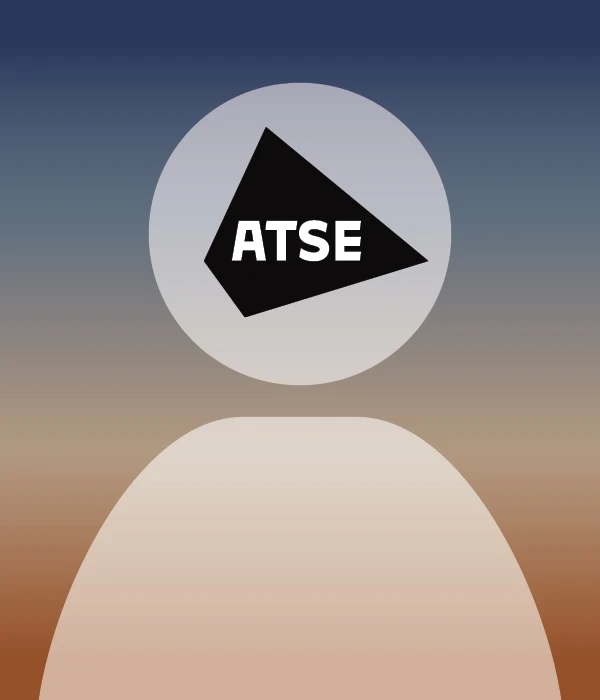
OBITUARY
Edgar Banks died on 26/1/2018.
Dr Edgar Roger Banks FTSE was the eldest of four born to Raymond and Hilda Banks. He attended Camberwell South Primary School then Brighton Grammar, excelling as a Prefect, School Captain and Dux. The talented student played sport and became a Scout and Signals Cadet. His lifelong love of music began with violin lessons, and he played in a recreational capacity into later life, transitioning to the cello in his early 50s.
Roger won a scholarship to the University of Melbourne, which gave him a cadetship with the Post Office, allowing him to work on the job and study. After two years he transferred to full-time study and graduated in 1953 with a Bachelor
of Electrical Engineering with first-class honours.
Roger was involved in various line work in Western Victoria, Geelong to the Adelaide border and special tension work on wires in Bendigo. He wrote a paper on this subject and received a call to fix faults between Perth and Adelaide with the promise of, and eventual promotion from a Gr 1 engineer to a Gr 3 engineer.
In 1955, he won another scholarship for young engineers and sailed on the Orion to England to learn about the latest switching technologies. He convinced his boss at the time to allow him to visit five companies so he could collect a diverse range of information for future developments in Australia. He visited GEC, British Ericsson, STC, British Siemens and Austel, spending three months with each.
In a heartfelt tribute from children Melissa and Jeremy, they recalled that in 1972 a long black car came to the house and took them to the Steam Ship Canberra bound for England. Roger was an executive for Plessey Telecommunications in Liverpool and had a picturesque existence in Heswall, a beautiful village with cobblestone roads and horses in paddocks.
Roger met Molly May Carmichael from West Derby, Lancashire, and they married in 1956, arriving back in Melbourne just after the 1956 Olympic Games had finished.
Roger’s experience in England helped him assist the Post Office in choosing the L M Ericsson Cross Bar Switching System. He wrote an extensive paper on the subject published in the Telecommunications Journal of Australia in 1961.
He was also involved with the International Telegraph and Telephone Consultative Committee (CCITT) and appointed chairman of the working party for National Automatic Networks, sending him around the world for regular meetings.
Roger continued to chair the working party meetings for CCITT until his resignation in July 1968. The assemblies were held in various locations including Montreal, Geneva, New York, Stockholm, Munich and also at home in Melbourne.
In New York in 1964, Roger presented his plenary report along with a handbook called the Manual of National Automatic Networks.
According to Roger, the split of the Australian postal service and the newly formed Telecom meant Australia needed him. At Telecom, Roger was Head of Marketing and by 1980, the Director of Corporate Strategy. Very much a visionary before the internet, he talked about digital switching systems, and the future being in data storage, data transfer, computers and communications.
He was elected a Fellow of the Academy in 1983. He retired in 1988 but remained active as:
• a member of the Athenaeum Club
• a member of the Rumour Tank
• a member of the Brighton Grammar School Top-Enders
• an RACV councillor from 1992-2001 • President of the RACV Club from 1990-1993
• a Board member of VicRoads from 1992-2005
• a Board member for Monash University Accident Research Centre – 2005
• an Honorary Chairman of the Board for Melbourne University Engineering Foundation from 1997-2007.
He was awarded an Honorary Doctorate by the University of Melbourne.
Roger’s son, Jeremy Banks, lovingly recalled his father as his “greatest hero” and “a gentleman who used a fountain pen, wore a suit and carried a briefcase. “In his career and on various boards there are numerous examples of tough decisions he made that others would avoid due to self-interest, lack of vision or not wanting to be unpopular. His motivation was always the greater good for all in the situation, and his logic was flawless.”
Daughter Melissa Banks recalled: “Roger was excellent at public speaking as well as speaking in general; he used to say he could talk under wet cement.
“It is hard for me to sum up in words all the various qualities that made up our Dad’s character. Roger was a loving, caring, supportive, funny, persistent, hard-working, dedicated, positive, calm, reliable and selfless person, the list could go on and on.”
Dr Edgar Roger Banks FTSE died on 26 January 2018, aged 87.